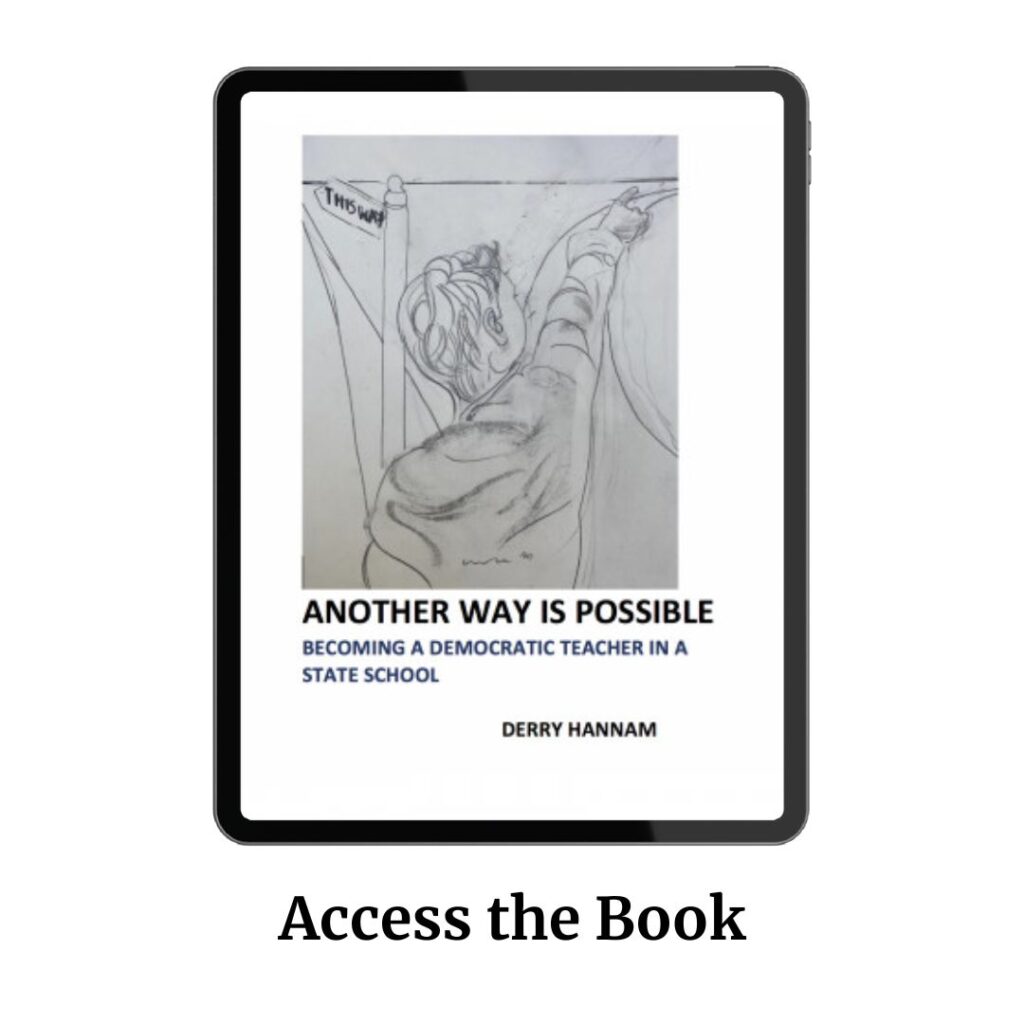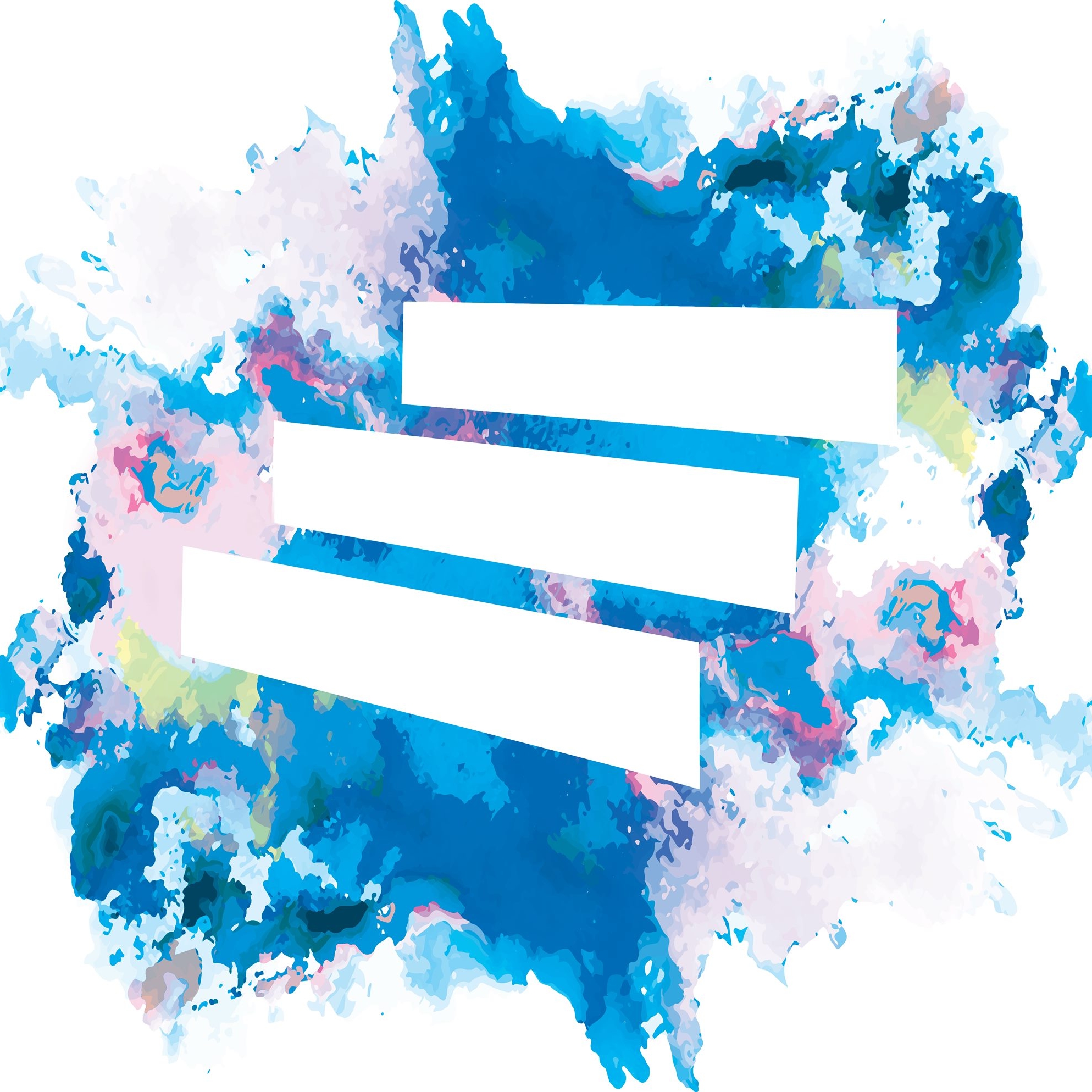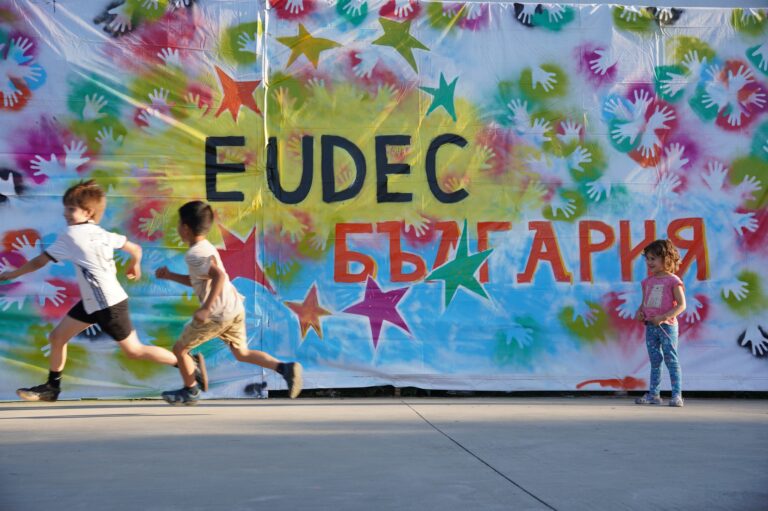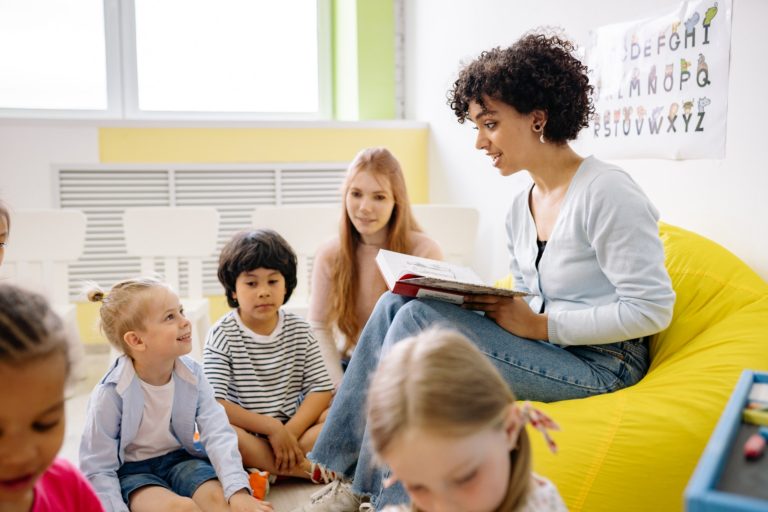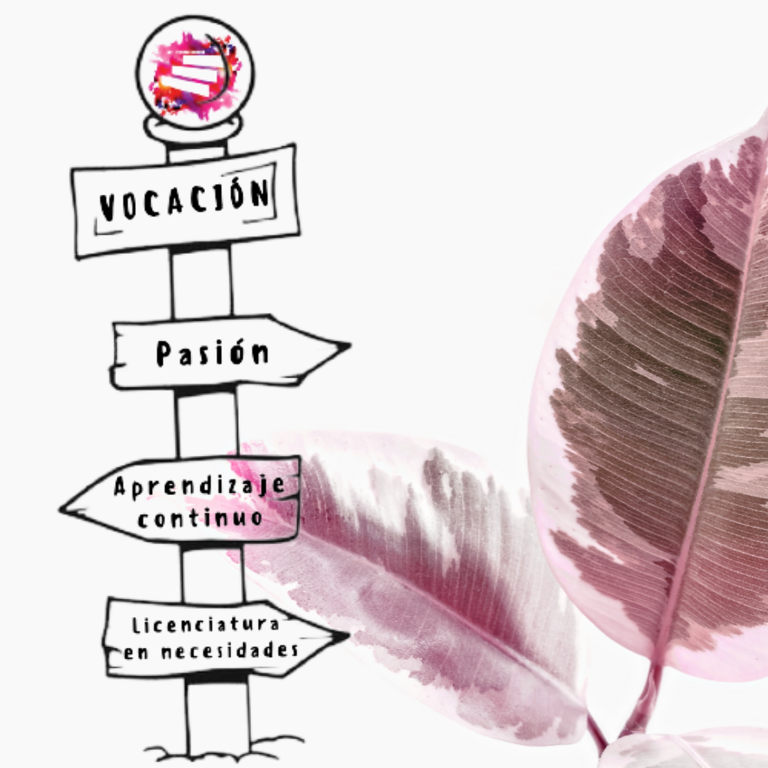It has been our honor to translate Derry Hannam’s book “Another Way is Possible: Becoming a Democratic Teacher in a State School” from English to Spanish. Derry gives a living example of how it is possible to change the educational system from within, using democratic forms of youth participation to manage group learning and growing together.
Our Prolog for the Spanish Edition
The first time that we encountered democratic education was at Hadera Democratic School, near Tel Aviv, in Israel. Luz and I were still at the beginning of our educational research project around the world and we started in the Middle East, taking advantage of the fact that my sister was studying Arabic in Jordan.
Upon arriving in Hadera, we were greeted by the “visiting committee”, made up of a couple of students and a teacher, who after a few introductory words left us with the students for a tour and explanation of the school:
- “This is where we hold the parliamentary sessions. Anyone can propose topics to discuss, they are discussed and voted on. The votes of all people (regardless of their age) are worth the same.”
- “This is the book with the school rules, resulting from the decisions of the parliament.”
- “Over there you see some children who are offering workshops. Here is another space for those who prefer to study on their own instead of going to classes.”
- “In fact, the classes are not mandatory. You can try them at the beginning of the year and then decide which ones you join. You usually talk about that with your mentor, who you also choose, among the adults.”
It was the first time that we found ourselves in this type of school and we could hardly assimilate what we saw. It seemed too good to be true. Especially because we had just crossed Palestine, on our way from Jordan, and we had not liked the reality we had seen there at all. So I told them: “Wait a minute, you have a lot of freedom and respect here, but the world out there is not like that. No one respects the voices of others (especially if they are different or smaller).” Agad, one of the girls who was guiding us, about 12 years old, remained silent for a few seconds and then replied: “Maybe that is my role then, to show other people how it is possible to live in respect with each other.”
She left me speechless. Just as they later left me speechless in Nepal, in India, in Mexico, in Peru, in the United Kingdom, in Spain, in Bulgaria and in the places that are yet to come. They continue to show me how treating young people with respect, as equals, active participants in their learning processes and in the co-creation of their school can change everything. It can even lay the foundations for peace in regions that have not known it for a long time.
Do you want a society where people talk to resolve their conflicts in a non-violent way? You can create it at your school. There may be a conflict resolution circle, where the children themselves learn to facilitate restorative, not punitive, dialogues. There may also be times to go deeper and understand our emotions, creating a culture of peace. The bullying pandemic that we are experiencing does not have to continue.
Do you want a society that takes care of mental health? Reject absurd concepts such as “school failure,” which destroy self-esteem and block people’s opportunities for growth. Open spaces for dialogue to discuss topics that make us feel uncomfortable and where everyone feels included. Open your center to self-compassion, empathy and gratitude.
Do you want a society where young people do not feel lost, but rather empowered to make the world a better place? Start making it possible today at your school. Start creating opportunities for them to make decisions relevant to their lives, gradually. We can provide spaces to explore their passions, face challenges and discover that they have the ability to learn from anything that motivates them. Not only that, but they have the ability to make changes about those things they don’t agree with, starting with how their school operates.
At the last European Democratic Education Congress of that I attended, in Bulgaria, Yaacov Hecht (founder of Hadera Democratic School) shared with us with hope that he met former students of the democratic schools of Israel in the demonstrations against the authoritarian policies of the government. At the time I write this (November 2023), when Gaza is being heavily bombed, we need those students, teachers and families who see another path, not only for education, but for living. And we don’t just need them in Israel and Palestine, we need them all over the world.
This is the key. The school is not disconnected from society. But it establishes the pillars of the society in which we live. If during 12 years of our compulsory schooling we are trained physically, emotionally and rationally to follow orders, without questioning the forms, changing the “why” for “what they want to hear”: What society do we expect to live in? Do you think we develop as empathetic people responsible for building a better world? Or do we develop as obedient followers and consumers?
For me, the easiest way to understand it is this: The “how” is more important than the “what”. That is, how we learn and experience learning spaces is more significant than what we study or what is part of the curriculum (not to mention grades). There are many reasons for this, but I find that not all reasons are equally valid for all people. There are those who advocate for the rights of children, making explicit that their personal freedoms are not respected in conventional schools. Some are concerned about the contribution of standardized school structures to violence and mental health problems. Some see great potential to develop 21st century skills, such as critical thinking, problem solving and collaboration, and support the employability of young people in the future: not based on what you know, but on how well you are able to adapt and learn. Even if you only care about grades, there are studies that show how student participation has positive effects in this area as well.
But something was missing. Democratic education and youth empowerment seemed restricted to private schools. Both elitist schools (which use terms like “leadership” and “innovation”) and progressive-minded schools (which use terms like “freedom” and “creativity”). That’s when we met Derry Hannam, at an education conference. It seemed that he had achieved the impossible: implementing democratic education in public schools. And not just any public school, but within the classicist system of the United Kingdom.
We were immediately inspired. We fell in love with his message and his work. Not only had he implemented it as a teacher, but he had then defended democratic schools as an inspector (as in the famous case of Summerhill School) and carried out research on the subject, showing the positive impact of student participation regardless of socioeconomic level. Derry also supported youth organizations, and mentored those who wanted to try it, as is the case of Suvëmae, a democratic space within a public school in Estonia. We couldn’t do more than try to share his story by translating this book from English to Spanish. In the book he tells us about his first steps, his discovery of democratic education and how it transformed the lives of children who had already been classified as “failures” and thanks to this they lived full lives.
This year (2023) we finally met him in person, at his little house near Brighton, United Kingdom. He was much taller than we expected. And also much older. Derry was already over 80 years old, but due to his participation in educational innovation circles it seemed that he was 30. He was in all the events and responded to our online requests looking for collaborators to carry out international projects. He could have been simply “retired” for quite some time, but I saw him very “activated.” He believes in this cause with all his heart. And his heart is full of moments, stories and people with immense gratitude towards him and his family. Luz and I said goodbye to him and his wife Deb, taking the train back to Brighton, dreaming of living lives as passionate and full of love as theirs.
There are now more than 150 education pioneers from 17 countries, like Derry, who have contributed to our research at Evolving Education. And I still haven’t forgotten that girl in Hadera who opened the door for me to understand the potential for social impact in education. I can no longer wake up a day without thinking about how to support this educational and social change. I hope this book opens the doors to that adventure for you. It’s very worth it! If not, ask Derry.
